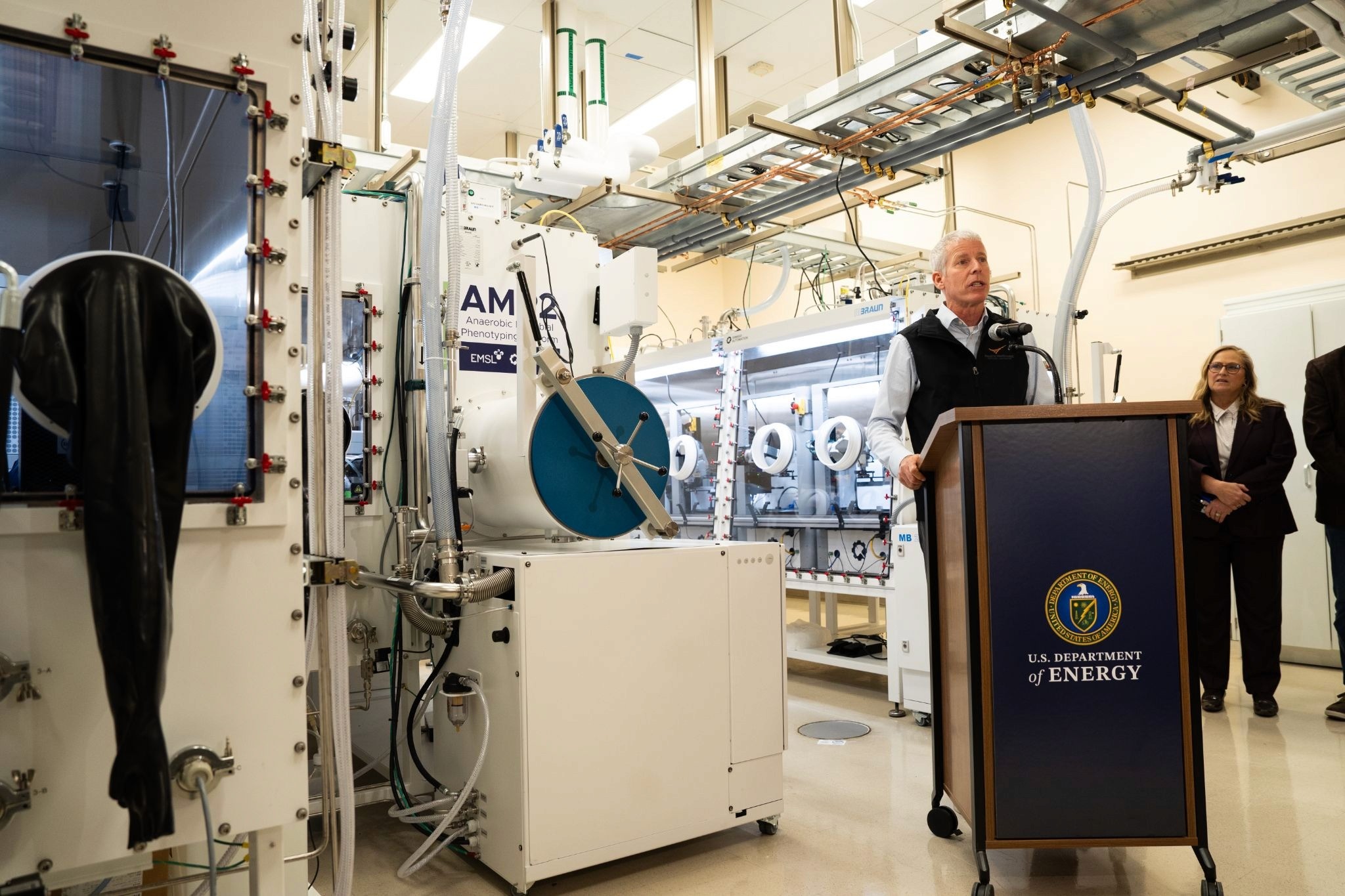Ai Digital Biology
Pioneering Synthetic Biology Workflows: Biosyntia Adopts Sphere Fluidics' Pico-Mine Platform
In a move to revolutionize bio-based production of nutritional ingredients, Cambridge-based Sphere Fluidics, renowned for developing single-cell analysis systems leveraging its patented picodroplet technology, has announced that its Pico-Mine® platform has been adopted by Biosyntia
Jun 20, 2023
Credit: Wirestock (Canva)
In a move to revolutionize bio-based production of nutritional ingredients, Cambridge-based Sphere Fluidics, renowned for developing single-cell analysis systems leveraging its patented picodroplet technology, has announced that its Pico-Mine® platform has been adopted by Biosyntia, a leading biotechnology firm headquartered in Copenhagen. This news underscores the increasingly prominent role of synthetic biology and metabolic engineering in streamlining industrial processes and aligning them with sustainable practices.
Biosyntia's decision to employ the Pico-Mine platform in their workflow pivots on the technology's ultra-high-throughput, picodroplet-based screening capabilities. The adoption of this platform aligns with Biosyntia's ongoing efforts to accelerate the creation of novel, industrially relevant cell factories, setting new benchmarks in the biotechnology sector.
Biosyntia's groundbreaking techniques involve tailoring processes based on biocatalysis, enabling the production of intricate chemical compounds through fermentation. These methods not only support the evolution of more sustainable manufacturing processes, but also enhance the cost-effectiveness of producing active ingredients for vitamins and plant-derived bioactives.
One of the cornerstones of Biosyntia's strategy lies in the innovative use of genetically encoded biosensors to develop cutting-edge cell factories for precision fermentation. Traditionally, these tools, such as flow cytometry cell sorting, are grounded in sensing internal product concentrations. But the picodroplet incubation platforms offered by Sphere Fluidics permit a transformative shift. They allow for the miniaturization of the fermentation process down to the nanoliter scale, facilitating direct sensing of extracellular product concentrations and straightforward isolation of improved production strains.
Hans Genee, Chief Scientific Officer and Co-Founder of Biosyntia, elucidated this development's significance: “With the advent of Synthetic Biology, the introduction of genetic diversity in microbes has become routine. However, identifying rare and improved phenotypes, such as vitamin production and secretion, from a large mutant library remains a challenge and a general bottleneck for the industrial biotechnology industry. Picodroplet screening is a game-changer, and with Sphere Fluidics’ Pico-Mine in our lab, we are now able to test 1,000-fold more strains within the same timeframe and with a fraction of the resources. From what I have already seen, I expect to see significant impact across a wider portfolio of projects.”
Biosyntia's adoption of Pico-Mine has already yielded impressive results. Within just a few months of integrating the technology with Biosyntia's proprietary B-vitamin biosensor, the company successfully identified improved genetic variants of its leading B-vitamin production strain at an unprecedented speed. These strides are currently being upscaled for the precision fermentation of sustainable and natural B vitamins. The Pico-Mine technology will also be utilized for additional molecules beyond B vitamins, solidifying its pivotal role in Biosyntia's R&D strategy going forward.
Ravi Girdhar, Director of Sales - EMEA, Sphere Fluidics, further emphasized the mutual benefit of the collaboration: “Our Pico-Mine system provides scientists with the ultimate flexibility to adapt picodroplet technology to their individual research needs. We have worked collaboratively with the Biosyntia team to support and drive forward their R&D goals, enabling them to explore genetic diversity at unprecedented speeds. It is very exciting to see these results already being realized, and we expect many more to come.”
The Pico-Mine platform is a semi-automated system from Sphere Fluidics’ extensive range of single-cell analysis systems. It has been designed for additional flexibility to support early-stage research, harnessing the company's proprietary picodroplet technology. This unique platform offers numerous custom-built functions, which can be integrated into complex workflows, including cell encapsulation in picodroplets and subsequent incubation, splitting, injection, and sorting. The Pico-Mine platform enables precise analysis and sorting of extensive libraries in mere hours while maintaining cost-effectiveness.
By coupling high-throughput screening capabilities with cost-effectiveness, the Pico-Mine platform stands poised to usher in a new era in biotechnology that is bound to impact a broad array of industries. This collaboration between Sphere Fluidics and Biosyntia is an exciting milestone for the two companies and represents a promising development for the biotechnology


















